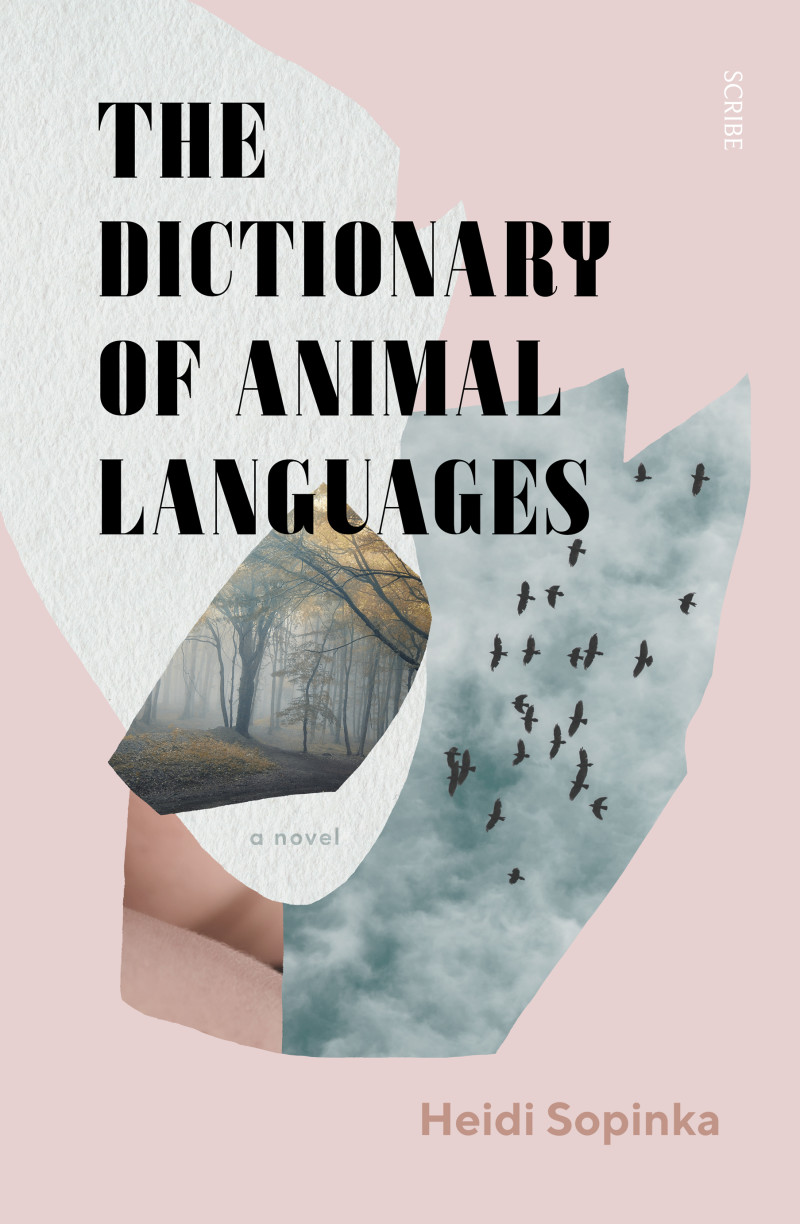lip lit: the dictionary of animal languages

The Dictionary of Animal Languages by Heidi Sopinka (Scribe Publications)
“I think all women carry something of a rebellion inside them that often goes unexpressed. Because we think we are not in the race – or game, or whatever the sporting analogy is – we have a sense of anarchy that I think is an advantage. In times like these it threatens to erupt. It is not such a bad thing.”
Ivory Frame is a special character. She is quiet, not shy, but rebellious growing up in the 1920s, leaving her parents confused. She prefers the company of nature, particularly animals, although we eventually watch her bloom with other artists in Paris. Now in her nineties, her life’s work has been creating a ‘dictionary of animal languages’, by going into natural environments to record audio and take notes on the sounds that animals make. Her contented, solitary world is unravelled with the arrival of a letter that forces her to take stock of her life, and question how she chose to face difficulties.
The author, Heidi Sopinka, has an extensive career as a helicopter pilot, travel writer in Southeast Asia, magazine editor and as a chef in the Yukon. This is her first published novel. Her interesting life clearly informs her writing, which is lavish on details and takes on a daunting amount of time periods and locations.
I admittedly feared the worst when I started this book. How would I construct a review out of something this… up in the air? The themes felt intangible, unreachable in the first 20 to 30 pages. I worried that the concept of a woman discovering she has a granddaughter without ever having conceived a child combined with her occupation as an animal scientist would take the narrative into a hazy fantasy that I would be unable to make sense of.
But then the narrative swung into a rhythm that moved back and forth across the protagonist’s life, and I could feel the themes rising. The interwoven stories of Ivory Frame’s existence show us how she struggles through what she initially feels to be unrequited love, and a lack of desire for domesticity and motherhood. Slowly, we begin to understand bits and pieces of her story. Sopinka alludes to the events of Paris, but makes us wait.
She has based Ivory upon the life of Leonora Carrington, an English-born surrealist artist who lived most of her life in Mexico. Some of the events of the novel have been taken directly from Carrington’s life or remain recognisable with the art of fictionalisation. Perhaps this is why it feels so realistic.
The exploration of women who choose careers over motherhood and how complex this choice can be is topical. What looks at the beginning to be Ivory’s firm feminist passion for her career is anything but, and the same goes for women who make the opposite choice. Ivory’s pilot for her fieldwork in the 1980s, Ondine, describes how when she flies, she feels ‘so engrossed… she forgets she is a mother’. This also plays into ideas about how women’s mental health is perceived, their emotions being considered hysterical while a lack thereof towards family and social convention can only be defined as deficient. However, the expression of this theme is not blunt. It’s not hammered into you. Rather it is weaved throughout the narrative forcing you to think about Ivory’s ‘choices’, which feel more like actions borne of panic and trauma.
The scope of this book is enormous, covering a good 70 to 80 years of the protagonist’s life. Yet information is doled out to the reader frugally, and out of chronological order. This makes it a heavy read, and something you need to be in the mood for. When the narrative weaves its way throughout the years, you begin to gain a sinking awareness of what’s to come. That’s where it has its power, but you have to stick with it before you get there.
For me, some of the themes and style called to mind this year’s Stella Prize Longlistee The Choke by Sofia Laguna, especially the intense emotion and confusion of the protagonist. If you’re ready for a heavy, emotional read, The Dictionary of Animal Languages might be just what you’re looking for.

